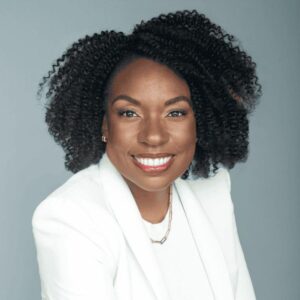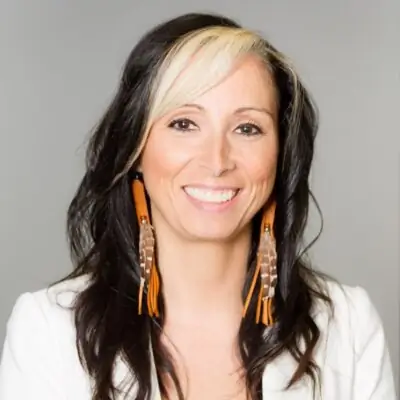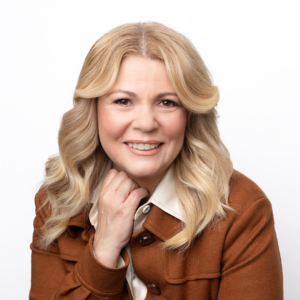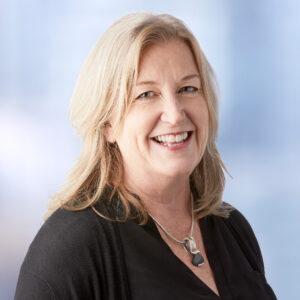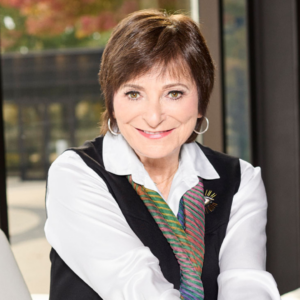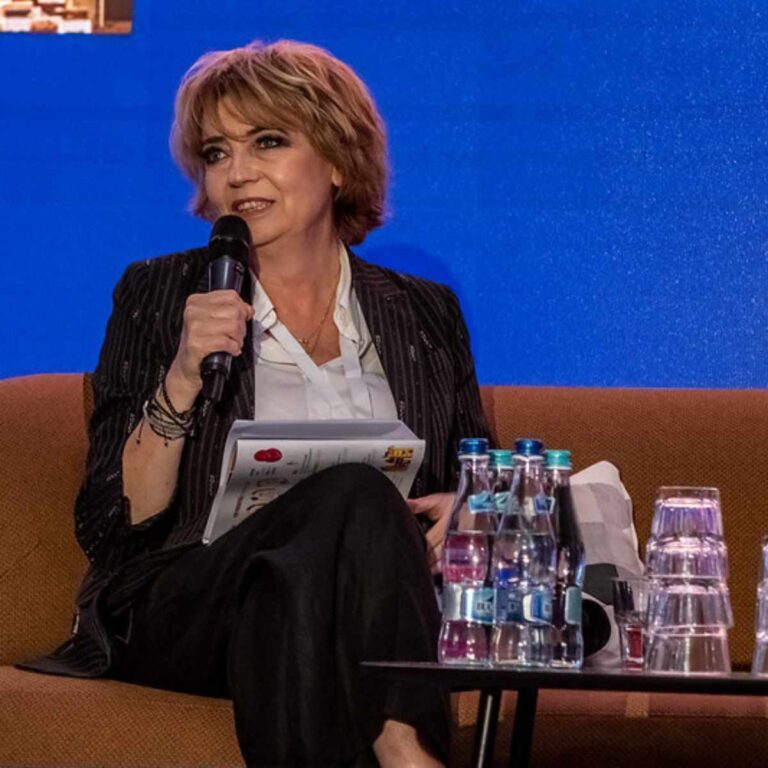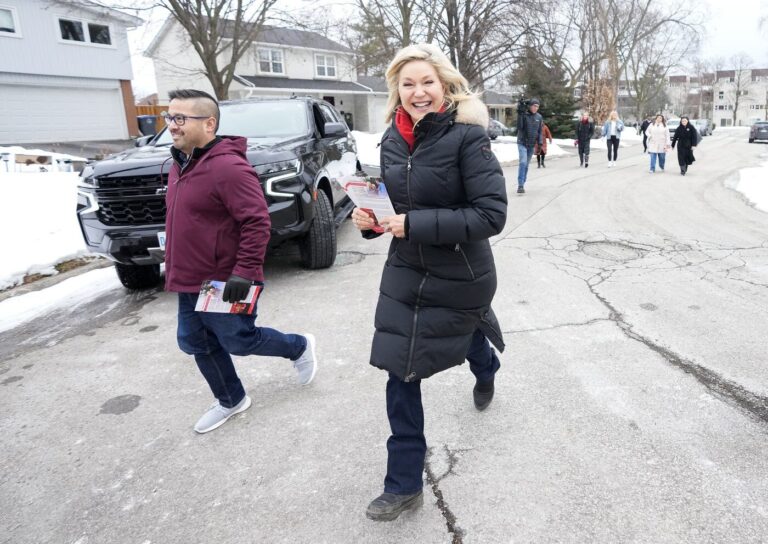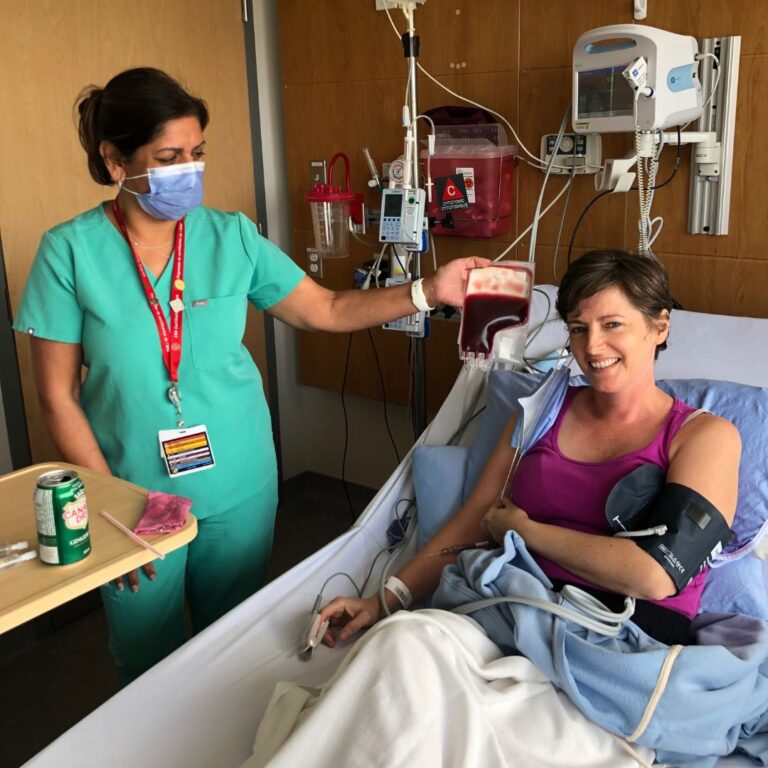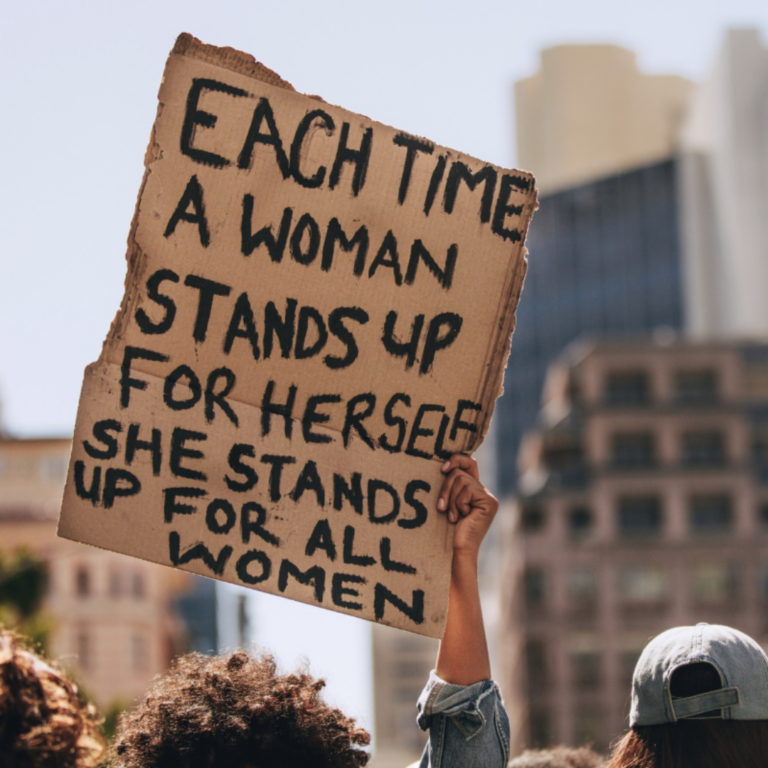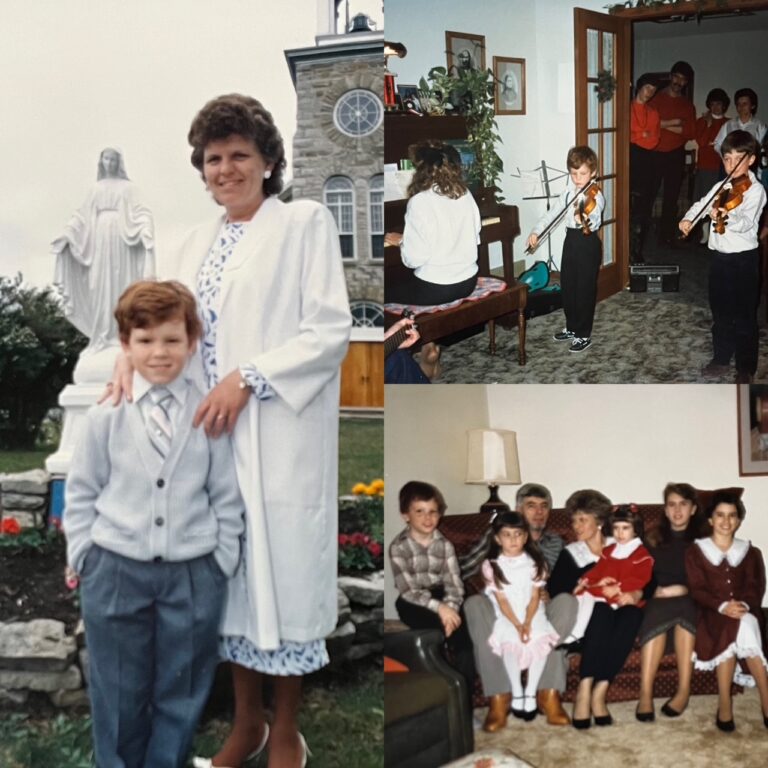The Honest Talk Podcast: Chinyere Eni, Head of RBC Origins
On this episode of The Honest Talk podcast, Jennifer and Catherine sit down with Chinyere Eni. Not only is she Head of RBC Origins, but she’s also had a really interesting career path, which has seen her embrace her own heritage while creating an inclusive professional space for others along the way.
She also has an incredible personal story. She’s overcome cancer and an amputation, and we all have a lot to learn from her courage and leadership.
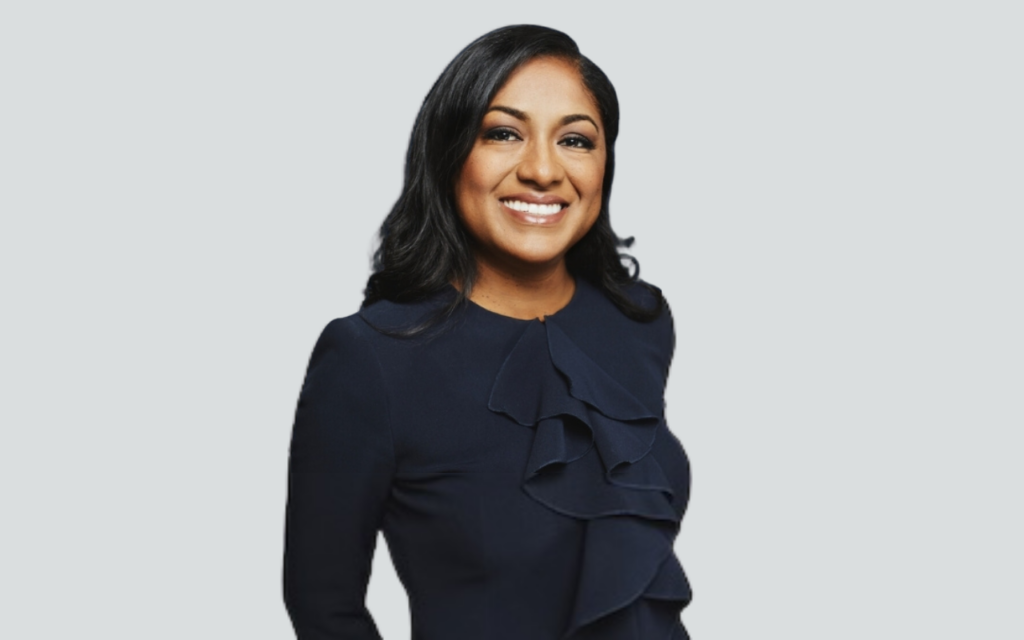
Catherine Clark: We started out with an intro that describes you as Head of RBC Origins, and I’m going to completely admit that that is not a title that Jen or I have heard before. We just wanted to get a sense from you: what does it mean?
Chinyere Eni: Thank you for the question. It is an exciting new direction for RBC. We formerly were called the Strategic Lead Team for Indigenous Banking and recently rebranded to become RBC Origins. We did that because we were very inspired by the UN Declaration on the Rights of Indigenous Peoples, the Truth and Reconciliation Commission’s Calls to Action for corporate Canada, and feedback that we’ve heard from Indigenous organizations from across Canada.
We wanted to feel different. We have a very rich history of storytelling in Indigenous communities. Usually, those stories are rooted in a message around the relationship, whether it’s with ourselves, others, or the environment, and so RBC Origins is a nod to that storytelling tradition and reconciliation, which is really about cultivating sustainable relationships with rights holders across this country.
Jennifer Stewart: Speaking of origins, it’s only fairly recently that you’ve been comfortable revealing your own origins. You have African and Indigenous heritage. What kept you from discussing that heritage openly in the past?
Chinyere Eni: So, I was more discreet about it given the risk of being typecast, the lack of understanding around Indigenous communities being five per cent of Canada’s population, and, quite frankly, systemic bias that can come with those identities. I wanted to start out in the bank being known for my work. It took me about eight years to come out and to share and to start to get involved, which I’ve been doing for quite a few years now.
I think it’s important to lead with purpose and passion, and I’m passionate about impacting the synergy between communities and corporations and what’s possible with that. So, I decided that if I was really going to be a leader, I would lead as my whole self, and it’s an important part of my background. I’m a second-generation Nigerian from the Igbo tribe on my father’s side, and I’m a member of Little Pine, which is a Cree First Nation in Saskatchewan on my mother’s side.
Catherine Clark: So what changed, Chinyere? What made you feel that if you were to speak openly about your heritage, you would not be typecast, or that at least allowed you to feel comfortable publicly embracing that very important part of who you are?
Chinyere Eni: It could be uncomfortable at times, but I’ve lived my whole life with a bit of discomfort. So, it started out applying to the banks with the name I’ve always been called, Chinyere, versus my English name. I started to identify myself and get oriented in banking, which is not a part of my family background or experience, and I joined an employee group called Royal Eagles. My boss, in conversation, found out about my identity and invited me to this conference. I went, and I realized there was a community that I really wanted to connect with, and I saw the great work they were doing with community impact. And I thought, “You know what? I think it’s time for me to show up as my whole self, as a person with a disability.”
Often, people see my disability before they see me — I’m an amputee at the hip level due to childhood cancer. And so I’m used to having opinions formed pretty quickly. And I thought, “Well, I’m just going to jump right in. This is who I am. It’s time. I want to get involved. And I don’t want to be a leader who only represents an organization. I want to be a leader who leads with purpose, in areas I care about and shows up authentically.”
And I decided that if that didn’t work for the banks, and I wasn’t going to change, I would figure out pretty quickly whether or not that would be embraced. And I jumped right in.
Jennifer Stewart: Walk us through having pediatric cancer and then having your leg amputated … as I can only imagine what your parents were going through, what you were going through. What was it like, and how did you cope? How did that experience change you?
Chinyere Eni: I’d say so many of us are touched by cancer, and when I got it, I was eight years old. I had an injury going back to my community. I was on a flight back home to where I was growing up, in Vancouver, visiting my dad and mom, and so when I fell and injured my leg, and it didn’t heal quickly, I started almost scratching through my skin. I realized pretty quickly something was wrong. After a couple of tests, I was encouraged to go get an operation, and they found that it was bone cancer — the same type that Terry Fox had — quite high in my thigh bone that leads into the hip. It terrified me. I realized that I would be part of a new neighbourhood that I didn’t know anything about, the cancer ward at BC Children’s Hospital. And because in those days, we didn’t believe that chemotherapy individuals going through it should be sent home to recover, we actually stayed in the hospital.
It was a really tough year for me to go through. I was surrounded by other kids with cancer, and all but two of us passed away that year. And so being surrounded by a lot of death at a very young age, you know, waking up in a pod of four and seeing one of my friends gone — they called it going home, but I quickly realized what it was — it really made me into an old soul at a young age, and I did lose my gender identity. I was bald for quite a long time. People would call me son all the time. I was in a wheelchair and then learned to walk on crutches eventually, and finally, I got on a prosthetic limb. And so now I use both crutches and prosthetic limbs, depending on the day. It was character-forming. It made me an old soul and acutely aware of what I wanted to do. I want to leave any place I go to a little better than I found, and I want a purposeful life and career.
Part of that is survivor’s guilt, which is the feeling that I need to make the most of my life because I’m no better than any of those kids who passed away. I still struggle with survivor guilt sometimes, but it’s given me a different tenacity to not give up and to recognize I’m not that important. I’m just a person, and I want to make sure that I do my best to honour those lives, including my best friend, who passed away during that year.
Catherine Clark: That is a really traumatic experience for anyone, but for a young kid, I really can’t imagine it. How do you cope with something that traumatic at such a young age, and how does it not have just an absolutely daily life-changing impact on you as a human being, as a woman, as a mother, as a professional, even to this day?
Chinyere Eni: So, it does have an impact to this date, but I believe in the power of framing our thinking, and I believe the reason I survived when others didn’t was because of the incredible love and support of my family who slept with me nightly at the hospital. I noticed kids whose parents lived far away and had to come into town passed away sooner, and that circle of support made a huge difference for me.
At that time, we didn’t have the same focus on mental health, so I did not get therapy, and I went on to become a bully at school and take out my anger to kind of preempt what I thought would happen to me being a bald kid in a wheelchair. And so after I went through that phase, I had a really courageous conversation with my mother about how it’s okay to be sad. I didn’t realize that it’s the same as post-traumatic stress. At that time, when she gave me permission to show my feelings and not always try to be positive, I went through a bit of a writing journey. And that writing journey helped me come to a couple of life lessons that framed my thinking. One that is always top of my mind is that it’s what’s left that counts. And so we all have challenges, so I try to focus on what’s left and use my mind more than my body. I really lean into that and try not to feel hard done by because we all have stuff. So it’s what’s left that counts is a big guiding principle of mine.
The second is what you focus on grows. Dealing with pain, dealing with late-term effects of cancer, dealing with 32 pills a day at the age of eight, and chemo and all of that is troubling. And the way that I navigated pain, and even the pain of losing my leg, was to visualize. My father spent a lot of time helping me visualize where we wanted to go when I was healed and what we wanted to do. It helped me realize that if I focused on the pain, I would just be marinating in this my whole life, because it’s uncomfortable every day. And why would I want to have a life that’s not going to be filled with great things? And so I started channelling my writing and thinking about what I wanted and not what I didn’t like about myself.
And then the last principle, which is kind of harsh, but I think it’s extremely powerful, is grow or die. Usually, that helps get me in my second gear and focused on what I can do rather than giving up. And so those three things have gotten me through countless troubling experiences.
Jennifer Stewart: Talk to us about how being a mom has changed your perspective as a person and professional?
Chinyere Eni: So, I am a mom of a nine-year-old son, and it was my biggest dream. I was told I wouldn’t have children after cancer, and I really wanted to have a child, so I worked hard through the IVF process to have my son. It has fundamentally changed me. Having a disability makes it hard to carry a child, so I was on crutches my whole pregnancy. I could not hold my son alone for the first six months because I was on one leg, and I could drop him. And so it really reminded me, I felt more disabled than ever, going through pregnancy and having a young, young child. A young child can run away, and I can’t run, presenting challenges I never expected. I’m now a co-parent, and having an executive role and being a co-parent who has to have them five days a week is very challenging. Still, it’s also the most rewarding thing in my life.
I marvel at my son. What he’s taught me is the adaptability of people. He showed me that he wouldn’t run away from me when he was free. He intuitively knew when I was on crutches that Mommy couldn’t run. I believe that I really was meant to have a child, but it also taught me that I can’t control everything and sometimes to put the right intention and trust. I’ve enjoyed motherhood, and it’s my priority over everything else, so it’s changed my life.
But it’s also challenging. When you’re working, and you’re a professional, and you already have to take a bunch of time being pregnant because you can’t move properly and work from home pre-COVID, and you come back and you still have challenges, it can really be tough to get back to that sweet spot where you feel you’re on your game. And so I did feel disadvantaged. I did feel worried about that with my career, and thankfully, by working hard, I could navigate well, but it was not easy.

